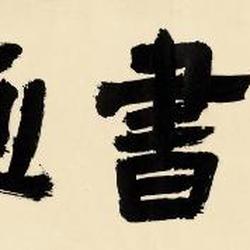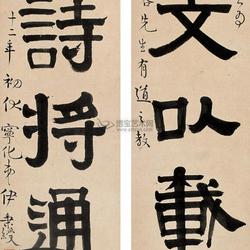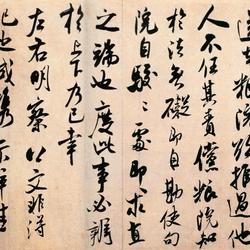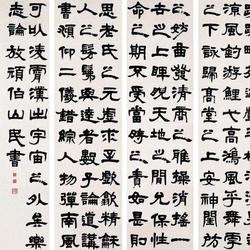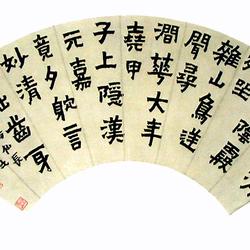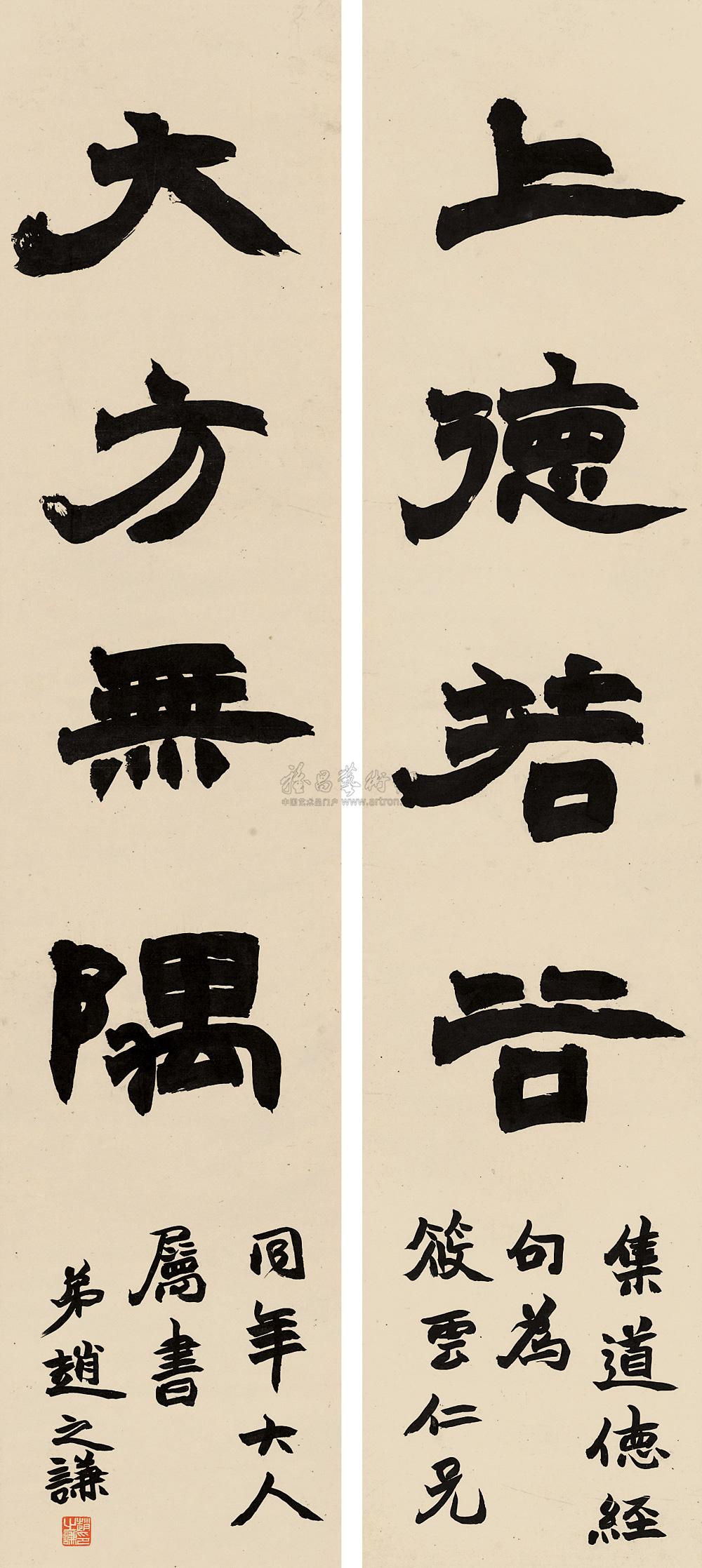
Seal: Zhao Zhiqian's seal (see "Seals of Chinese Calligraphers and Painters: Zhao Zhiqian" Seal 42, page 1337)
Title: A collection of verses from the Tao Te Ching, written in the same year as Brother Xiaoyun. His younger brother Zhao Zhiqian.
Zhao Zhiqian, whose courtesy name was Yifu, nicknamed Shushu, also nicknamed Beizhen, etc. A native of Kuaiji (now Shaoxing, Zhejiang). In the ninth year of Xianfeng (1859), he was elected magistrate of Boyang and Fengxin counties in Jiangxi. Later, he abandoned his official position and lived in Shanghai to make a living by selling paintings. He is good at calligraphy, painting, seal cutting, and is good at epigraphy. Yan Zhenqing studied calligraphy for the first time, then specialized in Beibei, and Deng Shiru, a seal script and official master. The paintings of flowers, wood, rocks and miscellaneous paintings were also made with calligraphy. They are broad and honest, pioneering the style of freehand flowers in the late Qing Dynasty. The engraving work was done under the guidance of Deng Shiru. It is neat and elegant.
Note: This couplet by Uncle Zhao Ju is alternately composed of Li and Wei. It is elegant but sometimes reveals square folds, tough yet boney, and graceful yet elegant. The inscription is written at the lower end, adding another layer of change, making it more decorative. And it is perfectly preserved, it is a good product. Xiao Yun was also nicknamed Xu Yongyi, who was also from Zhejiang. He held positions such as Zhang Jing, a military officer, minister of the Prime Minister's Yamen, and Shangshu of the Ministry of War. He and his uncle were both elected in the ninth year of Xianfeng, so the Zhao family called him "an adult of the same year".

